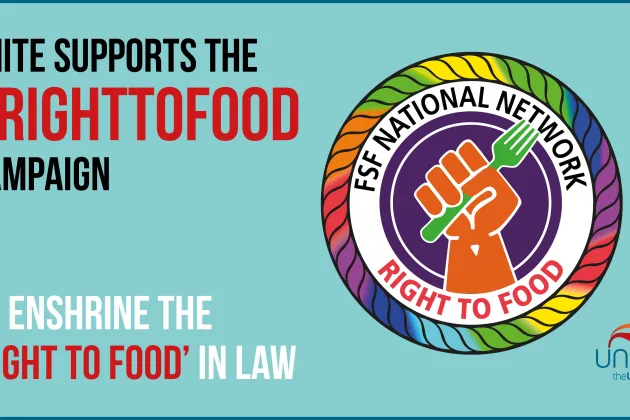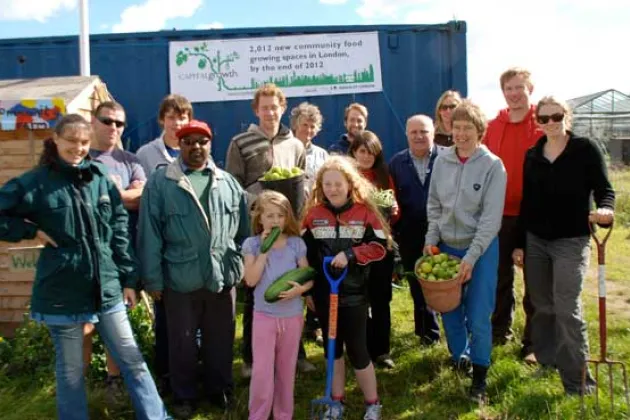11. Conclusion and Recommendations
One is a path for the few: a continuation of Global North monopoly capital and endless corporate profit, facilitated by corporate-friendly national and international policies imposing a one-size-fits-all agricultural system across the planet. It means export-oriented, chemical-intensive agricultural production. It is the path of sending pineapples from Philippines plantations, produced by farm labourers making four dollars a day, to supermarkets in the Global North where a single pineapple sells for four dollars. This means poverty, exploitation, and the poisoning of the countryside across the Global South.
From Moroccan agricultural workers in Spanish strawberry farms to Bangladeshi farmers struggling with salt-soaked fields, to Sri Lankans pushing back against monocrop plantations of palm oil replacing sustainable rubber polycrops; people across the Global South face a world-straddling northern-controlled network of supermarkets and processed foods, looking, smelling, and tasting the same.
The alternative is a path and a world for the many, the peasant and popular path to development: the struggle for food sovereignty under the banner of networks and movements such as La Via Campesina, along with efforts to regain land from neocolonial control. It is the struggle for just national distributions of land, and for agrarian reform. It means the fundamental reworking of national agricultural technologies to make them independent, or less dependent, on imported capital-intensive inputs. Food sovereignty and peasant agroecology also cools the heating planet.
Agroecology must be seen not only as a technical solution to the food, farming and climate crises, but a political, social and technical solution; resting on the autonomy and creative ingenuity of peasant smallholders and their capacity to resist monopoly capital and work outside of transnational monopoly supply and value chains.
Price fluctuations are a catastrophe in the Global South, and are very difficult for low-income and poor households in the Global North. Localising farming systems and restructuring social power into the hands of smallholders is key. For example, Zimbabwe, underwent radical anti-racist agrarian reform in the face of Global North sanctions, with agricultural plots redistributed from white settlers and given to black landless rural workers or urban dwellers – resulting in record harvests. Agrarian reforms imply a role for everyone, involving solidarity with peasants and poorer communities in the Global South brave enough to challenge landed power and take over land for their own use, including to feed their families and their people.
Yet, such struggles are just the beginning, and not the end. Peasant agroecology as the basis of just, egalitarian, democratic national farming systems is absolutely central in moving towards food sovereignty.
As peasant agroecology is a key to social and ecological development, it is also a key in tackling the climate crisis. With the food system responsible for almost one third of global emissions, a solution to the climate crisis must be connected to the agricultural and land management sector.
Our current global food system illustrates how closely interconnected the crises of climate, inequality, injustice and poverty are. The model of large scale, destructive agribusiness treats food as a commercial commodity to be traded for profit. It serves the interests of multinational corporations, and not the basic right of everyone to enough nutritious food to sustain a dignified life. A just transformation of the global food system to one based on the model of food sovereignty is crucial to address the root causes of the climate crisis, to ensure equality, and to bring an end to poverty and hunger.
These are the connections between the struggle for nationally based food-sovereign peasant agroecology and a peasant path to development, and a larger project for a Global or People’s Green New Deal to address the multiple global crises of inequality, poverty and climate breakdown.
Such a programme requires true internationalism, a movement of movements which acknowledges diversity and the transformations needed towards a shared vision of the future of our food systems.
This includes demands which go beyond ‘net zero’ to real zero emissions by 2030, with a goal of trying to limit the increase in average global temperatures to 1.5°C. That means the Global North must reach real zero by 2030, and the Global South by 2050; recognising that the Global South needs to continue to develop its industry and infrastructure. Solving the climate crisis must not come at the expense of the Global South’s right to development, or for states to provide decent lives for their people, and to eliminate poverty.135
Jump to...
It requires:
- Delivering on the promised demands for US$100 billion in annual, new, and additional climate finance, as a floor goal and not as a ceiling; and to commit to new finance goals which reflect the reality that the cost of addressing the climate crisis in the Global South is far in excess of US$1 trillion annually, roughly equivalent, in fact, to annual US military spending.
- Agreeing on a global goal for adaptation that can support countries with their own self-determined plans for adaptation to the changing climate and ensuring that adequate financial and technological support is made available, if it is needed, wanted, and desired – without falling into the old trap of a renewed technological dependency of the Global South on the Global North, using the climate crisis to create new structures of oppression and exploitation.
- Reparations for climate damages, additional public finance in compensation to those already suffering the brunt of climate breakdown today.136
By climate reparations, we mean that countries must stop doing harm, by rapidly cutting their carbon emissions; repair harm, by providing technology and finance to support people around the world to adapt to the crisis; and compensate for harm that cannot be repaired, via payments to Global South countries for loss and damage.137
- Recognising the existence of climate debt, part of the broader ecological debt linked to colonialism and capitalism.138
And that means recognising that people in states that depend on oil and gas exports, be they Trinidad and Tobago or Venezuela, have their own special needs for a just transition.139
- Investing in real solutions: this means rejecting carbon off-setting, saying no to carbon markets, and yes to non-market cooperative approaches based on hard and constantly lowering caps on emissions, in order to reach genuine zero.140
- Furthermore, it means anti-imperialism: real commitment to the political sovereignty of Global South countries, so that popular struggles for food sovereignty have the space to evolve. That means first of all cutting out the Global North policies which trample or seek or recolonise southern states: from the US-Saudi war on Yemen, to Global North sanctions which besiege countries opposing the northern imperialist agenda. Only if states can choose their own policies can they fight for climate debt on the world stage.
We need to be asking if any proposed measures will keep us below 1.5°C, whether they will allow humanity to thrive within planetary boundaries, whether they will undo or transcend historical injustices and power imbalances linked to colonialism and neocolonialism, and whether they will guarantee that everyone has a right to a dignified life.
Take action now
1. Take action with War on Want:
- Share this report with your family, friends and colleagues to expose the corporate capture of our food system and amplify the practical alternatives being built around the world.

Join the Right to Food campaign UK
Support the campaign to get free school meals, living wage and right to food enshrined in law
Find out more
Join War on Want
Be part of a growing movement to challenge the corporate monopoly over our food system and fight for the alternative that puts people and planet over profit:
Become a member2. Challenge the corporate control of the food supply chain in the UK. Get engaged locally and support an alternative way of producing and distributing food:

Volunteer at a local community garden
Start building local food sovereignty with Good to Grow UK
Find out more- Set up a food cooperative: the UK-based organisation Sustain has an important list of resources on how to set up or join a food co-op in your area.
- Join community-supported local agriculture networks, and buy vegetables from a local food trader.
- Learn about the work of small holder farmers building food sovereignty in the UK with the Landworkers' alliance.
3. Forge further alliances
Challenging agrochemical monopolies means solidarity, internationalism, campaigning, and targeting. The support of individuals, popular movements and campaigns in the Global North against harmful agrochemical exports is crucial to challenging governments and corporations. Individuals can take solidarity action with movements in the Global South or support unions struggles by putting pressure on international suppliers.
Affiliate your union branch to War on Want or get in touch if you are interested in learning more about how to raise the call for food sovereignty at your union: support@waronwant.org
4. Join anti-war movements:
- Such as the Campaign Against the Arms Trade in the UK. Meaningfully take on the task of preventing the Global North from encroaching on the economic and political sovereignty of Global South countries. Such internationalist solidarity can enable the growth of food sovereignty movements.
5. Read more on food sovereignty around the world:
- Globally: La Via Campesina and the International Planning Committee for Food Sovereignty (IPC).
- In the African Continent: Alliance for Food Sovereignty in Africa and the Siyada Network.
- In Latin America: Alianza por la Biodiversidad en Latinoamerica (in Spanish language).
- At UN level – the Civil Society and Indigenous Peoples’ Mechanism based in Rome, representing civil society, peasant movements and indigenous people at the Committee for Food Security of FAO and their initiative against the UN Food Systems Summit.
Published: December 2022. Research and writing by: Max Ajl & Sabrina Espeleta (War on Want). Based on articles and research contributions from our partners and allies in the UK and abroad:
ATTAC/CADTM Maroc and SDA- Syndicat Democratique de l’Agriculture, Morocco.
BAFLF (Bangladesh Agriculture Farm Labour Federation) and JKSS (Jatiyo Kisani Shramik Society, Bangladesh.
MONLAR, The Movement for National Land and Agricultural Reform, Sri Lanka.
KPL, The Kenyan Peasants League, Kenya.
Unite the Union, UK.
Sponsored by the Rosa-Luxemburg-Stiftung with funds of the Federal Ministry for Economic Cooperation and Development of the Federal Republic of Germany. This publication or parts of it can be used by others for free as long as they provide a proper reference to the original publication. The content of the publication is the sole responsibility of War on Want and does not necessarily reflect the position of RLS.

